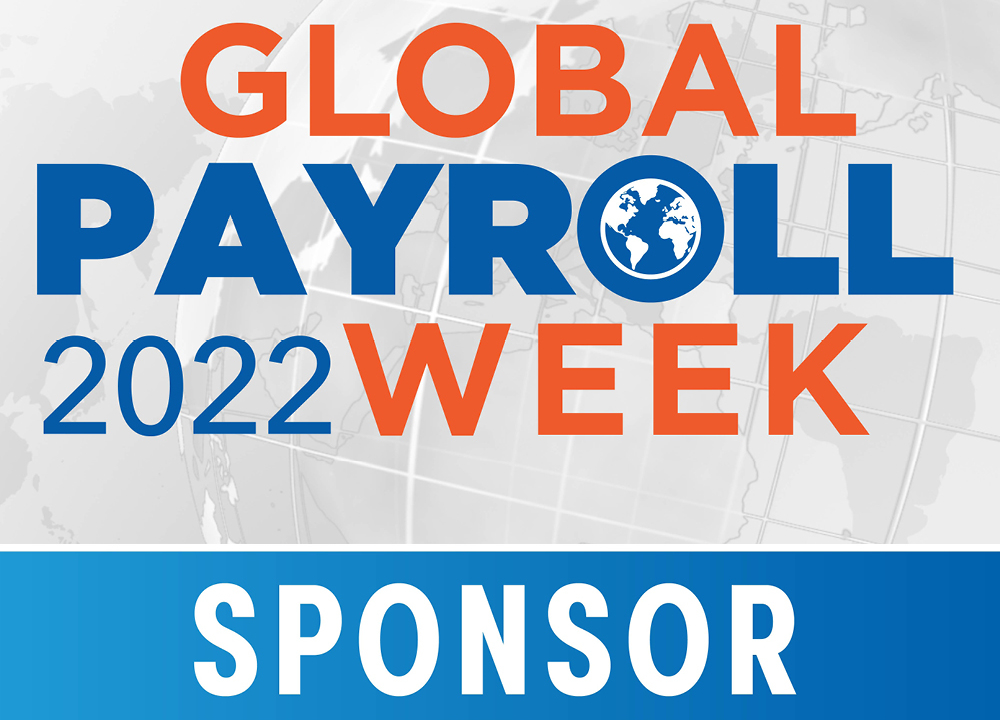Global Payroll Uncovered – Understanding the Common Misconceptions in Global Payroll

VP of Commercial Development
Recently, we took part in a webinar in association with the Global Payroll Management Institute ‘’Global Payroll Uncovered – What Every Good Service Provider Wants You to Know’’.
This webinar idea came about after a brief discussion in our office – when our Global Payroll Director, Shawn Golden remarked ‘’I wish I had known this when I worked client side for so many years – it would have made life so much easier if I understood these processes.’’
From there we got to thinking, what if we opened up the conversation to inform our clients and the market about what goes on from the Service Provider point of view – perhaps it would make life much easier if there was a clearer understanding of processes and a look ‘behind the scenes’.
After all, any good Service Provider has nothing to hide anyway right? Shawn’s client side perspective has given our Service Delivery team fantastic insights and a deep understanding of our client’s point of view, so maybe it would work the other way around too.
With that, we ran our webinar with 2 perspectives:
- The Client side – from Shawn Golden’s perspective, what he believed when he worked on the client side of global payroll
- The Service Provider – from my perspective (Amber Morris) as a Service Provider and what I know what really happens to operate your payroll successfully and compliantly.
Armed with an understanding of both sides of the coin, we covered 4 topics:
- Understanding the Payroll Process – what it really takes to run your global payroll
- In- Country Partners & Vendor Partnerships – the relationships that exist with your Service Provider to guarantee on the ground knowledge in every country you operate in
- Compliance – getting a grasp on the complexities involved in getting your employees paid around the world
- Partnership & Responsibility – the Client- Service Provider relationship as a marriage with accountability on both sides.
Understanding the Payroll Process
To begin, Shawn started us off on the topic of what he understood to be the ‘payroll process’ from a client perspective. Back when he worked on the other side of global payroll, he believed that there was a single technology platform that just ‘did’ the payroll ‘at the push of a button’ and processed it compliantly in every country.
What he wasn’t aware of at the time were the complex processes that go on behind the scenes of a global payroll operation once you’ve submitted your data to the Service Provider. What does exist however, is a strong technology platform, such as the Immedis platform that can consolidate and automate the global payroll process, with the physical processing still going on in each jurisdiction which you the client are operating in.
In turn, this technology gives you a true global oversight with better reporting. While payroll isn’t yet ’a push of a button’, it is however well on the road to becoming what we call ‘touchless payroll’.
Touchless payroll comes about when you’ve got a HCM platform and a Service Provider that have the ability to integrate and for your data to flow from that global HCM system – reducing the amount of duplicate entries into multiple systems as well as eliminating manual processes along the way.
Once your data is received, it’s delivered into each country you operate it, calculated with on-the- ground, local knowledge and then brought back into the single platform for final approval by the client. Where there is integration with your global HCM, that payroll data can flow back in, be consolidated and update the finance systems in some cases.
As part of the payroll process and also what many clients aren’t aware of, is that within the global payroll space, it is next to impossible to have employee presence in each and every country. Which is why in order to get that local expertise and understanding of complex legislation and processes, most good Service Providers will work with ICPs or ‘In-Country Parners’ based in the countries which they the Service Provider doesn’t have a physical presence in themselves. For example many Service Providers don’t have an employee presence across each of the 52 countries across Africa but a local knowledge of these countries and their differing legislation is key to remaining compliant and operating payroll successfully there.
So, as part of the ongoing payroll process around the world, it doesn’t happen at the click of a button and partnerships are required in some of the more exotic locations around the world.
However if as a client, it seems as simple as the push of a button, then your Service Provider has a good operation going.
ICPs & Vendor Partnerships
As outlined in point 1 above, Shawn cements the fact that as a client, he did not understand nor consider the fact that in order to operate his global payroll compliantly around the world that Service Providers worked in unison with In-Country Partners (ICPs)
From his perspective as a client, when he heard the words ‘I have to ask the ICP’, he then believed that the Service Provider wasn’t in fact the expert and brought him and his team at the time to think ‘What are we paying you for?’.
But as we have touched on briefly already, he didn’t consider the fact that Service Providers often cannot have a physical presence in so many countries around the world and so, work together with ICPs to bridge the gap and still have that seamless, on-the-ground expertise that’s needed locally.
Instead of having a Service Provider with average knowledge of every country and no ICP presence, isn’t it better to work with a Provider that has excellent knowledge and expertise in every country they have a presence in, as well as leveraging knowledge from the ICPs present in the countries they don’t have employees? That way, as the client you still benefit from global knowledge and support at a local level.
Based on the aggregator model – the definition of an aggregator is someone or something that gathers data from multiple sources and consolidates that information into a useable format.
If you are operating across multiple systems in multiple countries, if there is no centralized system, someone is tasked with manually consolidating that information. So, where do we look for value in this case?
A Service Provider who has these multiple relationships with the ICPs around the world, as well as their own employees in a number of locations is of huge value and benefit – it’s ensuring that your payroll is being truly managed with compliance and also in receipt of notifications of any local changes that may affect your payroll operation, no matter how small.
While many are not aware of the ICP relationship or were unsure of why they were being used in the first place, now you can see the benefit and use this knowledge to empower your organization even further when selecting a Service Provider in the future.
Know what to ask and why to ask it. Important questions you should ask for a better understanding of your Service Providers and the ICPs they use include:
- What is their process for selecting new partners?
- Video conferences or email only introductions
- Do you undertake any calculation queries?
- What does their Due Diligence cover?
- What capabilities are tested?
- What is their business continuity / disaster recovery mechanism?
- Information security
- Service transition
- Reference checking of ICPs – what is the process here?
- How many references does the Service Provider call?
- SLAs and expectations of ICPs – what actions undertaken to ensure a mutual understanding on both sides?
- Are there any induction or workshops?
- Are clear agreements in place?
- What are the steps taken towards non-performing partners?
- What happens when ICP is not performing
- What is the transitioning period until suitable replacement is found?
These are just some of the questions and processes we share with our clients and prospects at Immedis, and we think there should be transparency and open communications with all good Service Providers in relation to their ICP and vendor relationships.
Compliance
In Shawn’s experience from the client side, we discovered that he always believed 100% of the of responsibility regarding compliance lay with the Service Provider. He also revealed that during his time as a client, he always had an understanding that there was a link between payroll tax compliance and corporate taxation too – that the global payroll service provider ultimately had a responsibility for both and that the provider was the ultimate expert in relation to tax and compliance.
In fact, when taking about compliance within the global payroll arena, it is always a hot topic when speaking with people in the industry.
Yes Shawn is correct in his assumption that the Service Provider should be the expert – this is their area of expertise and you should have confidence that your chosen Provider has the knowledge required to operate your global payroll compliantly, no matter what.
However, in saying that, there is also a responsibility on the client side to have at least some level of knowledge of what the statutory requirements are in the main countries which you operate in:
- Payment dates of employees – is there a specific requirement?
- Physical filing dates for tax authorities in-country,
- Payment dates for local authorities,
- When are tax receipts due back in for your verification?
So even though your provider has ultimate responsibility, and any good Service Provider will have complete oversight of those complex requirements – you as the client should still have some involvement and awareness of what’s happening in each country.
A sign of a valuable Service Provider, is one who will make you aware of that information and walk you through the payroll process and the dates you need to know for filing purposes, and will trigger or remind you of those due dates and when you should expect receipts back.
The more information you have, and the more you are aware of those dates, the better position you will be in too.
Based on the client perspective assumption that Shawn had regarding corporate taxation going hand in hand with global payroll taxation – ultimately the payroll Service Provider will be solely responsible for your payroll tax compliance only unless otherwise stated or agreed upon. Some Service Providers do offer both, and a broader range of tax expertise in addition to payroll.
If its something that you have assumed or you know you need assistance with corporate taxation – it is your responsibility to check with the Service Provider what they are offering and billing you for. If you assume it is covering both, and they are unaware of your assumption, you are leaving your organization open to compliance related issues down the line if there is no formal agreement in place.
A good Service Provider will give you a clear answer on whether or not this is included, at an additional cost or whether they recommend another provider to do take the corporate taxation element. There should be absolutely no ambiguity wherever compliance is in question.
Another element of compliance that is sometimes overlooked is that of sending and receiving ‘shoe box information’ as I call it.
What I mean by this, is there should be a clear and open discussion and agreement of how information is received and updated – is it via email communication, verbal, etc.
Without the agreements and understanding in place, this makes compliance oversight much more difficult to manage without a true source of where the information is coming from. What is the source of truth form your organization to the Service Provider?
A good Service Provider will ask you this information and make you aware of this, so you can come to a formal agreement for change management on both sides on how information needs to be received, how its sent and how you can produce that information too.
So, as Shawn asked on client’s behalf, what is included in compliance oversight from a Service Provider?
- Gross 2 Net Calculations
- Statutory payslips based on country specific requirements eg physical format, language, mode of delivery etc
- Remittances to local tax authorities per country eg tax filings
Compliance in the global space, does involve a lot of risk, so how is it managed successfully?
Ultimately, any good Service Provider will tell you that true compliance comes from a real partnership between the Client and the Service Provider.
The trust and relationship needs to be there to have that open dialogue around what the requirements are, what the processes look like, and to be able to have open conversations about compliance. Then that is when you will really benefit on both sides with a full oversight of compliance and nothing left to chance or assumption.
Each Service Provider will approach compliance differently but at Immedis, we’re open about how we maintain compliance through 3 different ways:
- People
- Fully qualified, trained experts at every level, either in-house or on-the-ground with a true depth of knowledge.
- Processes
- Global accreditations around the world such as ISO27001 and ongoing audits
- Continuous process improvements
- Technology
- Data security – Payroll holding sensitive information on all employees
- Timestamped audit trails – GDPR – who is interacting with your data
- Data visualization and ability to spot errors quickly – RPA
Partnership & Responsibility
Back in his client side days, Shawn admits that he believed that all responsibility remained on the Service Provider side and there was no ‘partnership’ in global payroll.
A cause of frustration on his side was also ‘why doesn’t the Service Provider know what I mean’, in terms of communications, knowing what the Client wanted or why data was being provided in a certain format or even with regards to late changes coming in – why can’t these changes be added to the payroll even at short notice?
What is sounds like from Shawn’s prior frustrations was a lack of communication, true partnership and understanding of responsibility on both sides.
I always refer to the Client – Service Provider relationship like a marriage – it has to be 50/50 on both sides if its going to work. Someone else on our team here at Immedis refers to it as the parent- parent relationship, that it is not up to one side to ‘own’ the responsibility, its equal.
A good Service Provider is going to invite you in and want your feedback and your input to ensure that what their offering you as a service actually aligns with your company needs.
With that comes responsibility and accountability on both sides. The Client needs to give the Service Provider good quality data and information, in a consistent format, relevant to the payroll calendar and the deliverable dates in order to have a cohesive and coherent payroll process.
Again I use a personal reference here – Rubbish in-Rubbish out. If you aren’t giving good data, then you cannot expect good data back. The client has to provide their data in a clean fashion, that’s been audited, to put your Provider in the best position to deliver and process your payrolls.
What a good Service Provider will honestly tell you – ‘’we’re going to process what you give us. This is your data. ‘’
If you are lucky to have a global HCM that integrated with your global payroll technology then that’s going to greatly limit that issue from the beginning – updates will come from the HCM system directly, reducing the amount of manual entries (as long as your information in the HCM system is clean and correct too!).
But back to the marriage reference, although at times it seems complex, with open communications and working together towards the end goal, you can achieve great things via the Client – Service Provider relationship!
Some fast facts from our webinar:
- 53% of attendees believed that in their experience, there has been misconceptions between the client and the service provider side.
- 30% of attendees believed that their Service Providers weren’t transparent with them in relation to In Country Partnerships while 50% have never asked their Service Provider about the ICP process.
- 33% of attendees admitted that they are concerned with the state of their global payroll compliance
*Over 650 attendees answered the surveys which were run throughout the webinar




